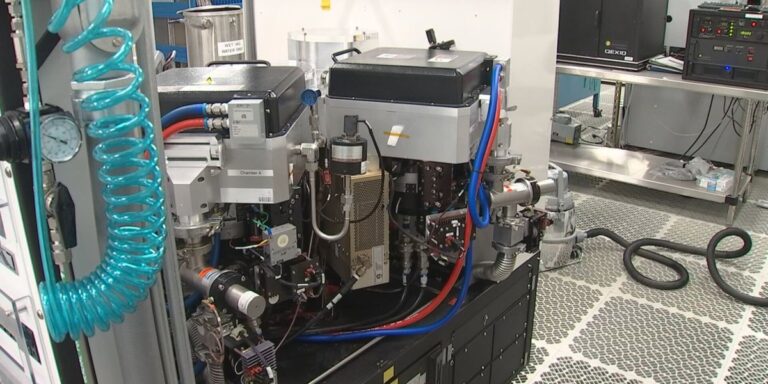
TEMPE, AZ (3TV/CBS 5) – Arizona has been in the national spotlight lately because of our future in semiconductor production.
Semiconductors, also called chips, are crucial in things we use every day like cell phones and cars. The CHIPS Act also passed earlier this year, designed to create jobs and make more chips in the U.S. instead of relying on other countries.
Arizona State University is on the front lines of cutting-edge research in the field, launching a new school to help get students prepared to work in those facilities. The new School of Manufacturing Systems and Networks will be based on the Polytechnic campus.
Arizona’s Family recently got a tour of the MacroTechnology Works building in Tempe, where some of those students will likely be learning. It’s a 250,000-square-foot building that from the outside looks like a regular office. It’s not a standard office, but a classroom, working lab, and important research space.
It’s a facility that appears like a seemingly regular office.
“Basically anything that has an on and off switch has got semiconductors as its brains. So they’re in everything,” said Zachary Holman, an associate professor in the School of Electrical, Computer and Energy Engineering at ASU.
Holman showed our Whitney Clark the lab specifically used for semiconductor chip and solar cell processing. Before heading in, crews had to put on special gear including a mask, hair net, gloves, a smock and booties. The goal wasn’t to protect ourselves, but rather the material that’s being researched.
Holman says the gear protects the chips because even a small particle of dust, or hair, could ruin them. The MacroTechnology Works building includes 40,000 square feet of this so-called “clean room space.”
ASU doesn’t focus on producing chips, but it develops and processes thousands of wafers per year, each with many chips on them.
“I have grad students who are discovering new things. There are few things as exciting as being part of a team where you discover something that no one has ever discovered before,” Holman said.
“The future is fantastic for anyone who is going into microelectronics and that is a wide cross-section of people,” he said.
ASU has partnerships with companies that share the space too. It has owned and operated the building for about 20 years.
Copyright 2023 KTVK/KPHO. All rights reserved.